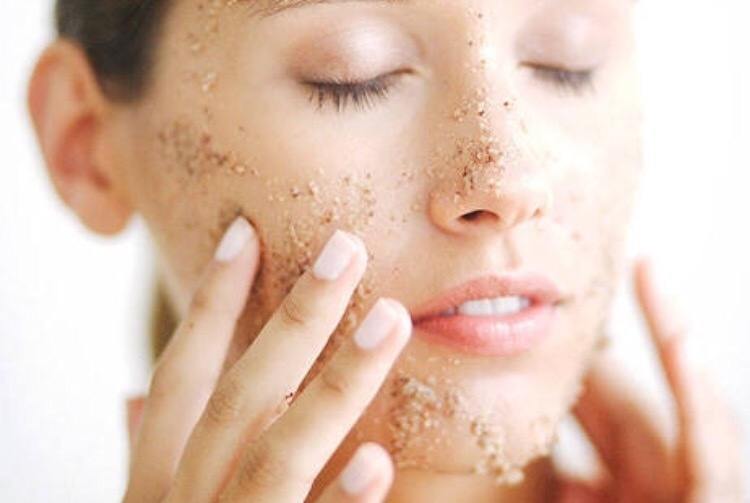We all hear about exfoliation, its benefits and for most of us, it’s a crucial part of our beauty routine. But how far do we really know about it? Are there things that still need to be uncovered before using these exfoliants (commonly known as scrubs) on our skin? Read on! As today, we are going to share some relevant information about exfoliation.
What is Exfoliation?
It is the process by which we eliminate the most superficial layer of the skin, the stratum corneum or dead cells, through an exfoliant, either physical or chemical, accelerating the replacement of old cells with new ones, the cellular renewal.
What are the Benefits of Exfoliation?
Including this step in your facial cleansing routine will help you remove dirt from your skin, reduce pigmentation caused by UV rays, reduce the depth of wrinkles, activate blood flow, promote the penetration of active ingredients in cosmetic products such as serums, night creams and day creams, your makeup will set much better.
How Will Your Skin Look If You Include Exfoliation in Your Routine?
By exfoliating your skin, it will be clean, evenly colored, luminous, hydrated, fresh and, of course, revitalized at any age.
Luminous skin
Once you know what causes your skin to exfoliate, the benefits that come with the process, and how you’ll look. I’ll tell you what you can do it with.
What Types of Exfoliants are There?
The types of exfoliants we will refer to in this blog are those that only have an effect on the surface layers of the skin, the stratum corneum, and therefore are classified as “cosmetic products”.
This precision is very important because there is a type of exfoliation or peeling that favors the deeper layers such as the dermis; however, the application of this type of procedure is the responsibility of a dermatologist.
Thus, we have both physical and chemical exfoliants.
Physical exfoliants contain synthetic or natural abrasive agents that, when rubbed on the skin, help to remove dead cells and impurities.
Not sure whether to choose a synthetic or natural exfoliator?
Here we present the characteristics of both so you can decide which one you want to try:
Synthetic Exfoliant
- Its particles are made of polymer
- Particles: polyethylene, polypropylene, nylon, polystyrene…
- Particle shape: spherical and fine
- Is gentle
- Does not cause sensitivity
- Recommended for sensitive skin
- Does not affect the environment
Natural Scrub
- Its particles are of animal or vegetable origin
- Particles: pearl powder, walnut shells, peach pits, almond or olive seeds, bamboo, oat flakes, kaolin, calcium carbonate, sea salt…
- Particle shape: irregular with peaks or ridges
- Is rough, scratchy
- May cause sensitivity
- Not recommended for sensitive or acne-prone skin
- Does not affect the environment
What If You Want a Natural Scrub But Don’t Want to Affect Your Skin?
Natural jojoba microgranule scrubs are an exception to the above table, as their particle size is very small and does not have any peaks, ensuring a gentle exfoliation that cleanses the skin thoroughly, but without affecting it.
In addition to the above,we recommend that you choose natural exfoliants:
- With a very very small granule
- That they add calendula, witch hazel, aloe vera, i.e. soothing ingredients, to their formulation.
- Not to exert pressure during their application
- Apply them to your skin and moisten your fingers with water.
- Make small, gentle circles for up to 2 minutes.
- Avoid applying them daily.
What are Chemical Scrubs?
Finally, let’s talk a little about chemical exfoliants. This type of exfoliation occurs by applying chemical agents to the skin that break down the intercellular glue that holds the cells together, promoting desquamation and accelerating cell turnover.
The cosmetics that cause these results contain mainly compounds called AHAs or alpha-hydroxy acids and beta-hydroxy acids (BHAs). Examples of these acids extracted from fruits are glycolic acid, lactic acid, malic acid, citric acid, tartaric acid, mandelic acid…
When using exfoliants containing AHAs or BHAs, you must make sure that the concentration is not higher than 10%, as it could cause your skin to become sensitive.
There you go! You now know what type of scrubs are better for your skin. What type of exfoliants do you usually use? Share more in the comments below!


